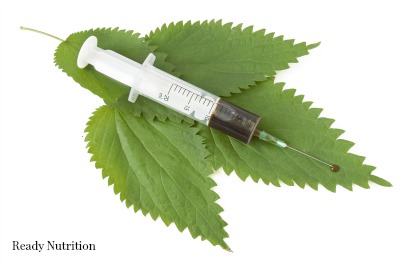How the FDA is Is Planning on Taking Down Alternative Medicine
How the FDA is Is Planning on Taking Down Alternative Medicine
The FDA has been on a crusade against natural medicine that has spanned decades. Their skepticism and perhaps disdain for natural medicine could simply be because at the moment, they are untouchable. In 1938, a U.S. senator (and homeopath) named Royal Copeland passed a law classifying homeopathic treatments as drugs. Since then, these products are deemed wholly natural and cannot be patented or regulated in any way, thus acting as a thorn in side for the FDA.
In fact, under the law, the FDA is required to regulate homeopathic remedies as drugs, but at the same time acknowledges that there is no evidence showing that homeopathy works. As such, you can expect that the vast majority of scientists and mainstream healthcare practitioners to never get behind the idea that natural medicine (essential oils, herbal tinctures, teas, etc.) are a type of medical treatment in any form. Although there have been studies done on natural medicine in Australia, Britain and the United States that found little evidence that homeopathic remedies work, many believe more studies have not been performed because of the lack of patents. Since natural medicine cannot be patented, drug companies will not waste their money studying them which truly limits our understanding of how powerful they could be.
Changes Are On the Horizon
Historically, regulators have generally looked the other way. Since 1988, the FDA allowed remedies to be sold, however, they needed to meet certain FDA manufacturing guidelines and can be marketed over the counter only for “self-limiting” conditions, meaning illnesses like colds that go away on their own. But changes are on the horizon. With the an increase in homeopathy and natural medicine popularity, the FDA has decided to reevaluate their stance on this subject and look into a regulatory processes, and would look into whether consumers “have adequate information to make informed decisions” about such remedies.
That stance may be poised to change: The Food and Drug Administration (FDA) is this week holding a public meeting to evaluate “whether and how to adjust the current enforcement policies” to keep up with the growing homeopathic industry and a corresponding increase in safety problems. Since 2009, the FDA has sent nearly 40 warning notices to homeopathic manufacturers and has overseen three recalls. Pulled products include zinc cold remedies that caused people to lose their sense of smell and “teething tablets” with toxic levels of the plant belladonna.
This is the list of people who will be giving testimony at the hearing.
Whether or not you believe natural medicine is pure or just snake oil masked behind a marketable term, the FDA wants to make big changes and it can affect you.
Tess Pennington is the author of The Prepper’s Blueprint, a comprehensive guide that uses real-life scenarios to help you prepare for any disaster. Because a crisis rarely stops with a triggering event the aftermath can spiral, having the capacity to cripple our normal ways of life. The well-rounded, multi-layered approach outlined in the Blueprint helps you make sense of a wide array of preparedness concepts through easily digestible action items and supply lists.
Tess is also the author of the highly rated Prepper’s Cookbook, which helps you to create a plan for stocking, organizing and maintaining a proper emergency food supply and includes over 300 recipes for nutritious, delicious, life-saving meals.
Visit her web site at ReadyNutrition.com for an extensive compilation of free information on preparedness, homesteading, and healthy living.
This information has been made available by Ready Nutrition
"Destroying the New World Order"
THANK YOU FOR SUPPORTING THE SITE!
Latest Activity
- Top News
- ·
- Everything
I, Pet Goat VI by - Seymour Studios | I, Pet Goat 6
Official Trailer NOVA '78 directed by Aaron Brookner and Rodrigo Areias
Peter Sellers - The Party (opening scene)
Disgraced Former CNN Anchor Don Lemon Arrested
Our Crazy Modern World
© 2026 Created by truth.
Powered by
![]()

You need to be a member of 12160 Social Network to add comments!
Join 12160 Social Network